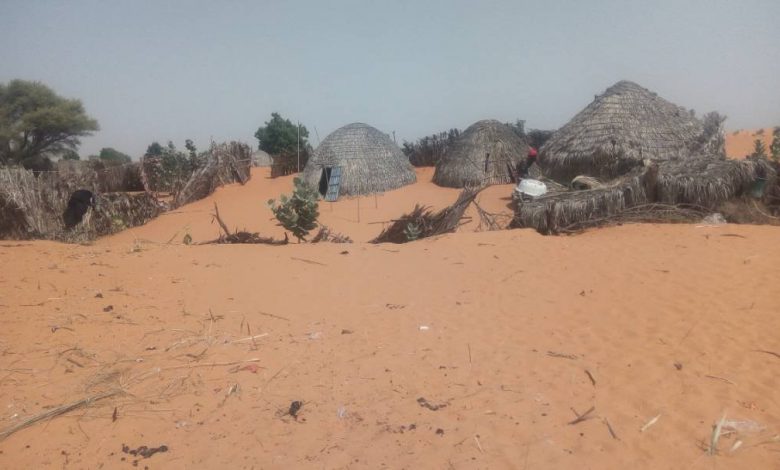Desertification Threatens Livelihoods In Northern Nigeria

Nigeria’s Minister of Environment, Dr Mohammed Abubakar, at an event to mark 2020 World desertification day in Abuja, disclosed that 35 per cent of the total land area in the country was threatened by desertification.
The United Nations General Assembly In 1994, declared June 17 as “World Day to Combat Desertification and Drought” to promote public awareness of the issue and the implementation of the United Nation Convention to Combat Desertification
The Presidency on June 14 announced that President Muhammadu Buhari had given approval to the National Agency for the Great Green Wall to commence the planting of 26 million trees.
Ali Busuguma, the Regional Director of African Climate Change Research Center (ACCREC), said: “The Great green wall is a planned process of halting desertification from encroaching from the Sahelian region down to some part of African countries, the gradual process, if not halted, will consume most of the African continent.”
In Nigeria, the great green wall involves the establishment of a greenbelt covering 1,500km from Arewa Dandi Local Government Area in Kebbi State to Abadam Local Government Area in Borno State to slow down desertification in the 11 desertification frontline states of Adamawa, Bauchi, Borno, Gombe, Jigawa, Kano, Katsina, Kebbi, Sokoto, Yobe and Zamfara.
High temperatures and drought associated with changing climate as well as human activities such as overgrazing and deforestation to support the soaring rural-urban demand for fuelwood and charcoal contributes to desertification.
Busuguma said “the government can only put up measures to regulate cutting down trees indiscriminately, but to restrict them completely would be very difficult as most people rely on trees for their source of energy. An approach that could reduce tree cutting and deforestation is for the government to bring in alternative sources of cooking, improve availability and affordability of kerosene, cooking gas and biogas.
Desertification and drought further compound social-economic challenges such as poverty, inequality, and resource confrontation by shrinking land and water available to support farming and pastoralist communities, thereby contributing to herder-farmer violence.
According to a report released by the International Crisis Group in July 2018, the violence between Nigerian farmers and herders killed at least 1,300 people in the first half of the year.
Amara Nwankpa. Director, Public Policy Initiative. Shehu Musa Yar’Adua Foundation said, “My First thought on land restoration and afforestation is that it is better to not have to do it. We are better off not losing forest cover and ecosystems at all in the first place.
“Natural ecosystems emerged over thousands and sometimes millions of years. We can’t simply replace them. Land restoration and afforestation can restore some of the ecosystem services previously provided by natural ecosystems but it is quite impossible to restore the quality of service.
“Nevertheless, where the environment is already degraded or the forest cover has been lost, land restoration and afforestation provide a feasible option to make the environment more suitable to support life.
“In Nigeria’s case, because we have lost almost 90% of our forest cover and seen a significant portion of our arable land degraded, these environmental repair options are critical for us to be able to sustain our livelihoods in various communities,” he said.
According to him, strategic planting of trees, restoration of arid/degraded land and establishment of biodiversity sanctuaries across all states of the Federation are critical for Nigeria today.
Amara explained that such steps will help stem erosion, improve food production and ensure outlying communities are not displaced from their ancestral homes.
Support Our Journalism
There are millions of ordinary people affected by conflict in Africa whose stories are missing in the mainstream media. HumAngle is determined to tell those challenging and under-reported stories, hoping that the people impacted by these conflicts will find the safety and security they deserve.
To ensure that we continue to provide public service coverage, we have a small favour to ask you. We want you to be part of our journalistic endeavour by contributing a token to us.
Your donation will further promote a robust, free, and independent media.
Donate HereStay Closer To The Stories That Matter




